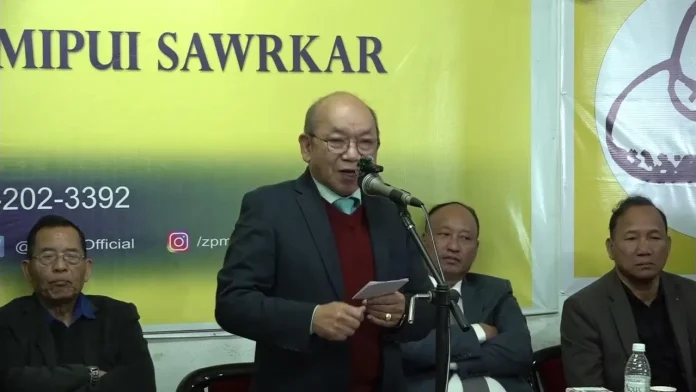AIZAWL, June 28: Mizoram Home Minister K Sapdanga has raised alarm over the rising crime rate in the state, revealing that more than half of the recent criminal cases are linked to refugees and migrants from neighbouring countries and Indian states. Chairing a high-level security review meeting on Friday, the Minister called the situation a major law and order challenge.
According to Sapdanga, Mizoram is currently hosting over 30,000 refugees, including Myanmar nationals fleeing post-coup violence, people from Bangladesh’s Chittagong Hill Tracts escaping military crackdowns, and internally displaced persons (IDPs) from Manipur’s ethnic clashes. He stated that a “significant number” of criminal cases have been traced back to these groups, particularly those who have entered illegally through porous international borders.
“The crime rate in Mizoram is on the rise, and more than half of these crimes are linked to people who have entered the state illegally or are staying as refugees,” Sapdanga said, underlining the pressure this has placed on state law enforcement agencies.
The Home Minister attributed the influx to unfolding crises across neighbouring regions since 2021. Myanmar nationals began arriving after the military coup, while the entry of Bangladeshi refugees began in 2022. Thousands of Kuki-Zo individuals from Manipur also took shelter in Mizoram in 2023 following violent ethnic clashes with the Meitei community.
In a parallel development, Chief Minister Lalduhoma on Thursday said the state government is mulling over the confiscation of identity documents issued by the Myanmar government to refugees who repeatedly cross the border and violate Indian laws. The proposed move is aimed at discouraging cross-border misuse and bolstering regulatory control.
Despite the deep cultural and ethnic ties between the Chin people of Myanmar, the Bawm tribe from Bangladesh, and the Kuki-Hmar-Zomi communities from Manipur with the native Mizos, the state government maintains that rule of law must be upheld.
Sending a strong message to the state police, Sapdanga warned that officers unable to perform their duties effectively will be encouraged to opt for voluntary retirement or accept special retirement packages. “We need a competent, efficient force that can respond to evolving challenges,” he said.
He further emphasized the critical role of community participation, urging the strengthening of village defence parties and local vigilance. “Civil society’s support is crucial in maintaining peace and order in these testing times,” he concluded.

